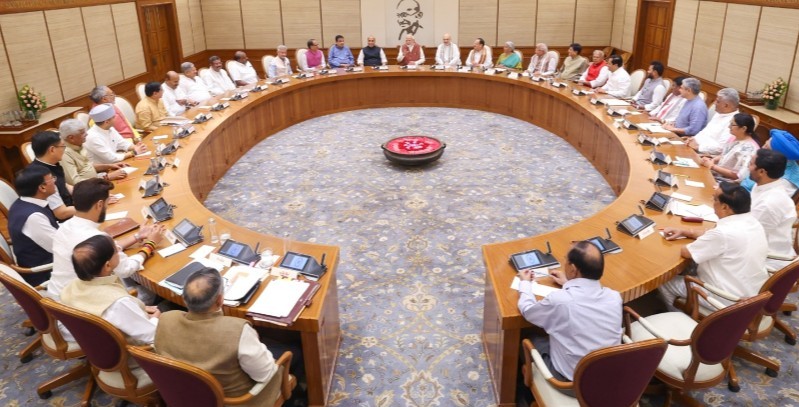
Rs.15,034.50 crore approved to boost MBBS and postgraduate capacity, ensuring more doctors and specialists for India’s healthcare system.
The Union Cabinet, chaired by Prime Minister Shri Narendra Modi, has approved a major expansion of medical education in the country through Phase-III of the Centrally Sponsored Scheme (CSS). The scheme will add 5,000 postgraduate seats and 5,023 MBBS seats in government institutions, with an enhanced cost ceiling of Rs.1.50 crore per seat.
The total financial implication of the initiative is Rs.15,034.50 crore for 2025-26 to 2028-29, with the central share at Rs.10,303.20 crore and the state share at Rs.4,731.30 crore. This expansion aims to strengthen India’s medical education capacity, increase the availability of doctors and specialists, and ensure equitable access to healthcare, particularly in underserved regions.
Key Benefits:
- More opportunities for students to pursue medical education in India.
- Strengthened availability of doctors and specialists, especially in rural and remote areas.
- Improved quality of medical training to meet global standards.
- Boost to India’s reputation as a provider of affordable healthcare, supporting foreign exchange earnings.
- Generation of employment for doctors, faculty, paramedical staff, and support services.
- Enhanced healthcare infrastructure through balanced regional distribution.
Implementation Strategy:
The schemes target 5,000 PG seats and 5,023 UG seats by 2028-29. Detailed guidelines will be issued by the Ministry of Health & Family Welfare (MoH&FW).
Background:
India currently has 808 medical colleges with an intake of 1,23,700 MBBS seats, the highest in the world. Over the past decade, India has added 69,352 MBBS seats (127% growth) and 43,041 PG seats (143% growth). Despite this, gaps remain in some regions, highlighting the need for further capacity enhancement.
The government’s investments under this scheme, along with the establishment of 22 new AIIMS under the Pradhan Mantri Swasthya Suraksha Yojana (PMSSY), are expected to further strengthen medical education and healthcare delivery. Additionally, new Medical Institution (Qualifications of Faculty) Regulations 2025 aim to expand the pool of qualified faculty through a more inclusive and competency-based approach.
This initiative reflects the government’s commitment to strengthening human resources for health, supporting Universal Health Coverage, and ensuring that India’s healthcare system can meet existing and future needs of 1.4 billion people.
Source: PMO
